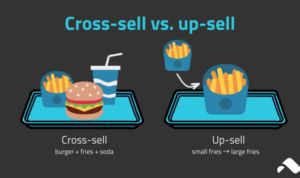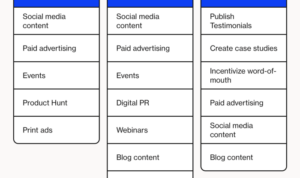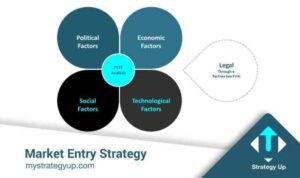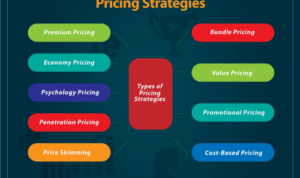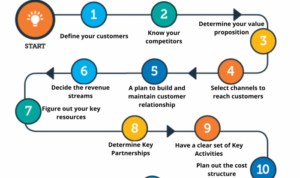Event Planning for Brands takes the spotlight, shedding light on the vital role it plays in creating brand recognition and fostering meaningful connections with target audiences. From successful strategies to cost-effective solutions, this topic dives deep into the world of brand events.
Get ready to explore the ins and outs of event planning for brands, uncovering the secrets to hosting memorable and impactful events that resonate with attendees and leave a lasting impression on your brand.
Importance of Event Planning for Brands
Event planning is crucial for building brand awareness as it provides a platform for brands to showcase their products or services in a unique and engaging way. By hosting events, brands can create memorable experiences for their target audience, leaving a lasting impression and increasing brand recognition.
Connecting with Target Audience
Events offer brands the opportunity to directly connect with their target audience in a more personal and interactive setting. Whether it’s through product demonstrations, interactive workshops, or networking opportunities, events allow brands to engage with consumers on a deeper level, fostering relationships and building loyalty.
- Hosting exclusive launch events can generate excitement and anticipation around a new product, creating buzz and driving sales.
- Organizing community events or charity fundraisers can help brands demonstrate their commitment to social responsibility, enhancing their reputation and building trust with consumers.
- Participating in industry conferences or trade shows can position brands as thought leaders in their field, increasing credibility and attracting new customers.
Successful brand events not only increase brand awareness but also drive customer engagement and loyalty, ultimately leading to long-term business success.
Steps in Event Planning for Brands

Planning a successful brand event involves several key steps that are essential for its success. It is crucial to set clear objectives before starting the planning process, as they will guide all decisions and ensure the event aligns with the brand’s goals and values.
Setting Clear Objectives
- Define the purpose of the event and what you hope to achieve.
- Set measurable goals to track the success of the event.
- Ensure the objectives are in line with the brand’s overall marketing strategy.
Selecting the Right Venue, Theme, and Activities
- Choose a venue that reflects the brand’s image and can accommodate the size of the event.
- Select a theme that resonates with the target audience and reinforces the brand message.
- Plan engaging activities that will keep attendees interested and create memorable experiences.
Budgeting for Brand Events
Creating a budget for a brand event is crucial to ensure that all expenses are accounted for and the event runs smoothly without exceeding financial limits.
Cost-Saving Strategies for Brand Events
- Consider sponsorship opportunities to offset costs. Partnering with other brands can help reduce the financial burden.
- Opt for digital marketing and invitations to save on printing and distribution costs.
- Utilize social media platforms for promotion instead of costly traditional advertising methods.
- Negotiate with vendors for discounts or package deals to lower expenses.
- Repurpose decorations or materials from previous events to save on purchasing new items.
Examples of Cost-Effective Brand Events
| Event | Cost-Saving Strategies | Impact |
|---|---|---|
| Pop-Up Shop Event | Utilized a shared space with another brand, collaborated on marketing, and used social media for promotion. | Generated buzz and increased foot traffic leading to higher sales. |
| Product Launch Party | Secured sponsorships for food and drinks, negotiated with venue for a discounted rate, and focused on targeted guest list for a more intimate event. | Received positive media coverage and created a memorable experience for attendees. |
Marketing and Promotion Strategies for Brand Events: Event Planning For Brands

In today’s competitive market, creating effective marketing and promotion strategies for brand events is crucial to attract the right audience and maximize visibility. Utilizing various channels and leveraging social media can help generate buzz and excitement around brand events. Collaborating with influencers or partners can further enhance event visibility and reach.
Utilizing Different Marketing Channels
When promoting a brand event, it’s important to utilize a mix of marketing channels to reach a diverse audience. This can include traditional methods such as print ads, radio spots, and direct mail, as well as digital channels like email marketing, website promotions, and online advertisements. By combining these different channels, brands can increase their reach and engagement with potential attendees.
The Role of Social Media
Social media plays a significant role in creating buzz and excitement around brand events. Platforms like Facebook, Instagram, Twitter, and LinkedIn allow brands to connect with their audience in real-time, share event updates, and create interactive experiences. By leveraging social media effectively, brands can build anticipation, encourage user-generated content, and drive attendance to their events.
Collaborating with Influencers and Partners, Event Planning for Brands
Partnering with influencers or strategic partners can greatly enhance the visibility and success of brand events. Influencers with a large following can help promote the event to their audience, while partners can provide additional resources, reach, and credibility. By collaborating with the right influencers and partners, brands can tap into new audiences and attract more attendees to their events.
Measuring Success and ROI of Brand Events
In order to determine the impact and effectiveness of brand events, it is crucial to establish key performance indicators (KPIs) and evaluate the return on investment (ROI) of hosting such events.
Identify Key Performance Indicators (KPIs)
- Number of attendees: Measure the total number of people who participated in the event to gauge the reach and engagement.
- Engagement metrics: Track social media interactions, website traffic, and post-event surveys to assess audience engagement.
- Lead generation: Evaluate the number of leads generated during the event and their conversion rate into customers.
Evaluate Return on Investment (ROI)
- Calculate total event costs: Include expenses such as venue rental, catering, marketing, and staffing to determine the overall investment.
- Revenue generated: Measure the direct revenue generated from the event, including ticket sales, sponsorships, and product sales.
- ROI formula:
ROI = (Revenue – Cost) / Cost * 100%
Tools and Methods for Tracking and Analyzing Impact
- Event management software: Utilize platforms like Eventbrite, Cvent, or Hubilo to track registrations, engagement, and attendee feedback.
- Social media analytics: Monitor hashtags, mentions, and engagement metrics on social media platforms to gauge event impact.
- Surveys and feedback forms: Collect feedback from attendees to understand their satisfaction levels and areas for improvement.
